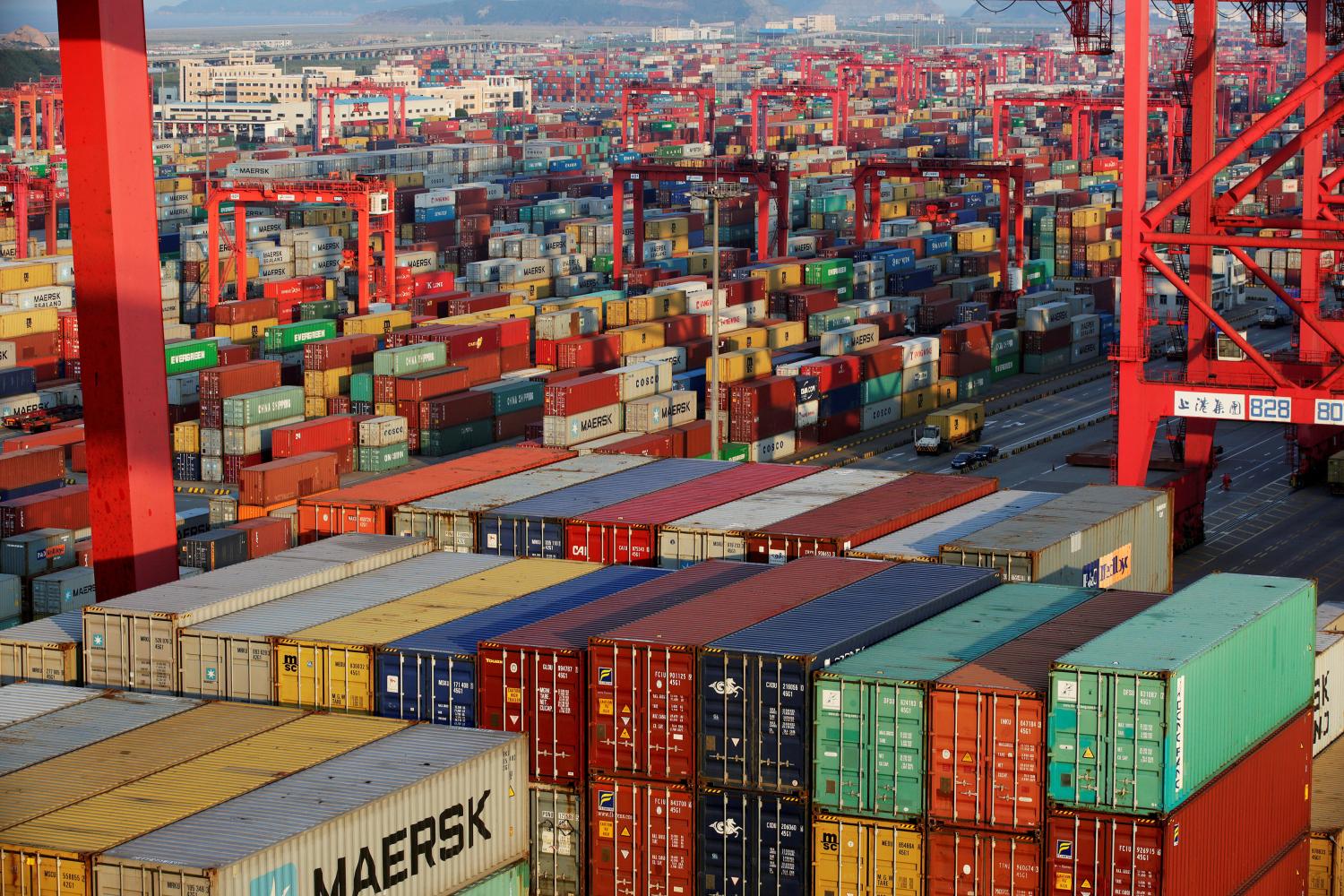The following is a summary of the sixth session of the Congressional Study Group on Foreign Relations and National Security, a program for congressional staff focused on critically engaging the legal and policy factors that define the role that Congress plays in various aspects of U.S. foreign relations and national security policy.
On Aug. 28, 2020, the Congressional Study Group on Foreign Relations and National Security convened online to discuss the increasingly complex relationship between U.S. trade policies and national security. In recent years, the Trump administration has used national security-related authorities to impose tariffs and impose other trade restrictions on allies, often as a means of securing leverage for new trade terms or advancing other policy objectives. Several of these efforts have proven controversial among both parties in Congress, with some arguing that they are improper uses of the authorities in question. But are there real limits on how the president can use these authorities? And what can Congress do if it feels they are being used inappropriately?
To discuss these complicated issues, the study group was joined by two outside experts: Professor Kathleen Claussen of the University of Miami School of Law, who previously worked in the Office of the U.S. Trade Representative, and Professor Tim Meyer of Vanderbilt Law School, who previously worked in the Office of the Legal Adviser at the U.S. Department of State. Prior to the session, they recommended several related pieces of background reading, including:
- Kathleen Claussen, “The Normalization of Trade Security Exceptionalism,” Lawfare (May 11, 2020);
- Kathleen Claussen, “Trade Administration,” Virginia Law Review (forthcoming 2020) (focus on Part II);
- Kathleen Claussen, “Trade Executive Agreements” (forthcoming) (focus on Part III);
- Timothy Meyer, “The Power to Declare Trade War,” Lawfare (Mar. 23, 2018);
- Timothy Meyer and Ganesh Sitaraman, “A Blueprint for a New American Trade Policy” (Dec. 2018) (focus on Part I);
- Timothy Meyer, “Trade, Redistribution, and the Imperial Presidency,” Yale Journal of International Law Online (2018);
- Timothy Meyer, “Misaligned Lawmaking,” Vanderbilt Law Review (2020) (focus on Part III).
After the study group session, Claussen and Meyer also joined Anderson to record an episode of the Lawfare podcast on the issues discussed in the study group.
Claussen opened the discussion by providing an overview of the legal regime governing trade issues in the United States and the role that national security concerns play within it. She noted that several statutory provisions–most notably Section 232 of the Trade Expansion Act, but also the International Emergency Economic Powers Act and Section 301 of the Trade Act of 1974–that allow the president to raise trade barriers in response to various national security concerns embrace open-ended conceptions of national security that translate into broad executive authority. In many ways, she noted, this reflects a broader shift in the administration of trade policy from Congress to the executive branch over the past several decades. The result is a system where various executive branch agencies engage in trade-related lawmaking and negotiate trade-related executive agreements under the (sometimes not entirely effective) coordination of the U.S. Trade Representative and with limited oversight by Congress. Enhancing transparency, installing clearer procedural requirements, and shifting decision-making away from the President so as to make more relevant determinations subject to the Administrative Procedure Act (or installing similar trade-specific requirements) could help ensure more regular trade policy-making and promote more effective oversight by Congress and the public.
Meyer picked up the conversation to address ways Congress might be able to constrain these trade authorities themselves, among other issues. While several relevant statutes originally contained legislative vetoes that were subsequently cast into constitutional doubt, Congress could constrain the scope of authority delegated by installing more specific definitions of national security, requiring sunsets that require periodic congressional reauthorization, and pursuing other measures that might give courts more fixed legal requirements not related to policy judgments that they would be more willing to enforce. Absent such changes, a future administration could alternately choose to lean into the broad discretion provided by existing trade authorities to pursue other trade agendas, such as measures intended to combat climate change. Meyer also noted that there might be other ways to build the economic inequality and distribution concerns that seem to be motivating many recent trade actions into the trade system so as to take pressure off national security exceptions and provide more regular and accepted avenues for policy making. One possibility would be to incorporate an economic development chapter into trade agreements that requires transparency around the impact of resulting trade on socio-economic considerations and obligates governments to respond accordingly through enhanced trade adjustment funds, infrastructure support, and other assistance.
From there, the study group moved into open discussion, including on the appropriate scope of national security exceptions, the role expedited procedures might play in promoting congressional review of trade measures, and the dynamics around past, present, and future reform efforts.
Visit the Congressional Study Group on Foreign Relations and National Security landing page to access notes and information on other sessions.



